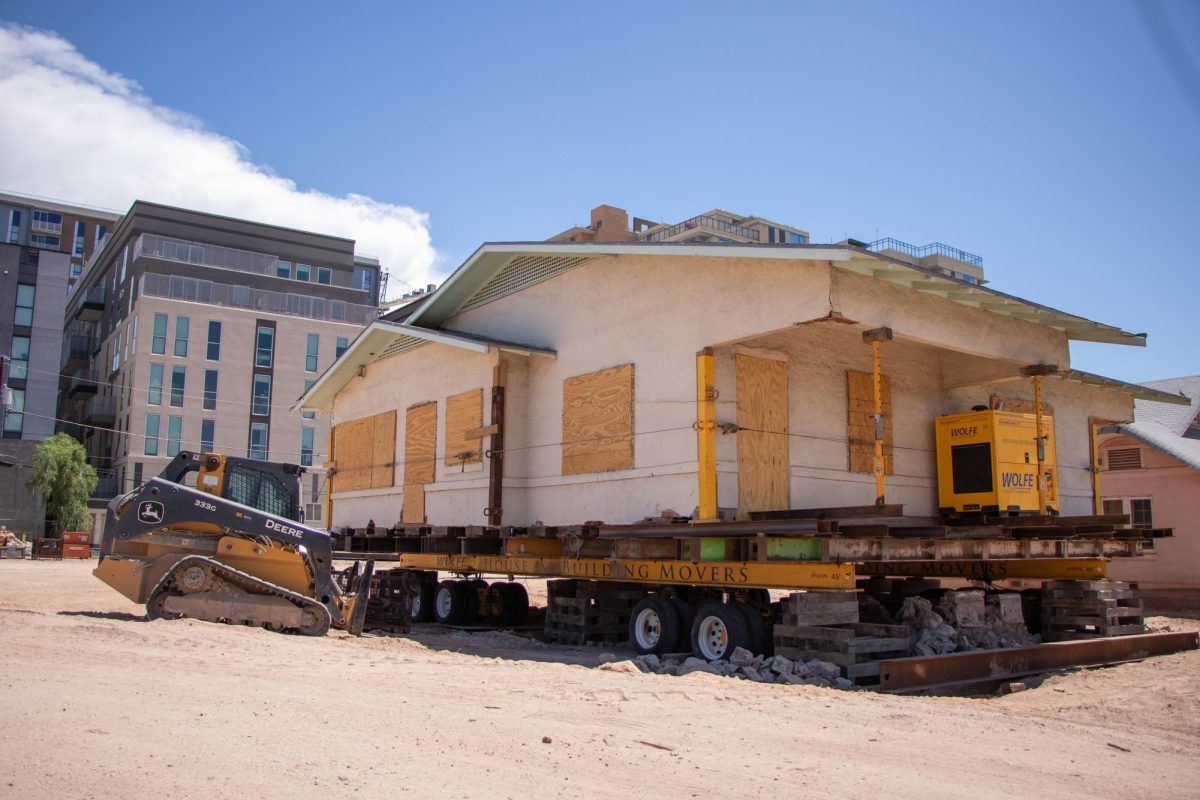As the Mexican food restaurant Illegal Pete’s comes to our community on University Boulevard, the controversy behind its name has resurfaced into the spotlight.
When the chain first opened in Boulder, Colorado, attention was brought to the restaurant’s name for its implied generalization that all Mexicans are undocumented migrants. However, the feud ended when restaurant founder Pete Turner refused to change the name, clarifying it was a reference to a book he read in college and homage to his father.
According to Area Connect, Boulder has a Mexican population of 5.89 percent. Comparing that to Tucson’s larger 29.84 percent Mexican population, the explanation that Turner uses to ease the controversy simply isn’t good enough.
Turner doesn’t build a strong, credible base, considering he doesn’t mention a title or author or even any elucidation on the literary reference. Regardless of his weak excuse, the derogatory implication is evident in anyone’s eyes, which comes to show his carelessness of the discrimination within his choice.
The name of this restaurant is a bigger deal in Arizona than it was in Colorado due to the larger Hispanic population, but the subject should have never been dropped so easily in the restaurant’s origin state.
The significance behind this controversy is not whether Mexicans are offended by it; the sheer existence of the discriminatory reference is available for everyone to follow.
“A business with that kind of name promotes that attitude some people have with using derogatory terms and assuming that it’s perfectly okay,” said Socorro Carrizosa, the program director of the Adalberto & Ana Guerrero Student Center.
Our nation stands for its diversity and equality among its citizens, yet we allow for such demeaning acts against all minorities. The fact that Colorado doesn’t have a large Mexican population doesn’t mean that the nation, as a whole, doesn’t either.
As Anahi Herrera, a sophomore studying political science and Latin American studies, stressed, “We’re trying to erase the criminalization of Latinos, and the word ‘illegal’ just makes a person less human.”
This brings us to the hypocrisy underneath the entire concept of the restaurant: saying that we want Mexico’s culture but not its people.
Given that his business keeps growing, Turner is obviously making a living out of promoting Mexico’s culture. Yet he encourages the dehumanization of Mexicans with his ignorant choice of name.
He’s not the only one to blame, though. By supporting his business, rather than standing up for the Hispanic minority, customers are also contributing to the idea that it is okay to paint minorities as inferior figures.
After Herrera and a few other people from the Guerrero Student Center spoke to Tucson’s Hispanic Chamber of Commerce about the importance of acting against such an offensive business entering our community, the topic was shrugged off because the only thing that mattered to chamber members was that the employees are treated with respect. In a few words, there’s no rule stating one has to respect our community while simultaneously consuming its culture.
It is disappointing to see that even a group dedicated solely to the Hispanic businesses in our community won’t act upon such disrespect regarding its audience.
We tend to only act only when things get violent, but it is simple acts like this that lead up to the bigger events. If we don’t address small but significant issues like this one, we will never change the way that American society views all immigrants.
You cannot use a certain culture for your own profit and then discriminate or delegitimize its people. You cannot come into a new community and paint the greater portion of its population as inferior and criminal.
We cannot just shrug it off our shoulders and act as if it doesn’t cause any harm to our community. As a state with such a large Hispanic population, we have a responsibility to stand up against the dehumanization of immigrants.
Follow Genesis Lara on Twitter.








